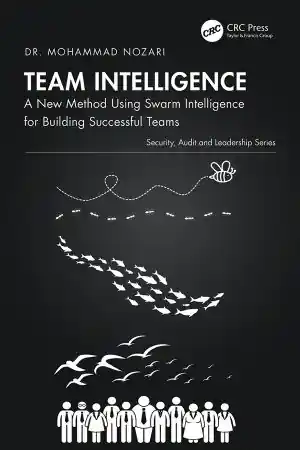
Digital Business
- Length: 995 pages
- Edition: 1
- Language: English
- Publisher: Silk Route Press
- Publication Date: 2021-03-06
- ISBN-10: B08Y7SSLSK
- Sales Rank: #497003 (See Top 100 Books)
Digital Business is a thrilling new text on the fourth industrial revolution and its intersections with business, organizational strategy, and digital transformation and change. Technology is a pervasive and accelerating influence on organizations, with wide-reaching impacts on every level of management and business function, from product design and customer experience to HRM, finance and all other areas of organizational functioning.
However, there are so many unknowns and underdeveloped areas of knowledge within the arenas of digitalization and the fourth industrial revolution. What do these things refer to in the first place? What really are the implications for organizational strategy – does strategy change fundamentally, or rather adapt traditional thinking and models to new realities? How do organizations effectively and correctly transform themselves to these forces, in order to thrive in our new realities?
Part I contains a chapter giving an introduction to digitalization and digital business.
Part II then expands on some of the major technologies powering the fourth industrial revolution (4IR), in three chapters:
Chapter 2 discusses three foundational 4IR technologies, namely cloud computing, robotic process automation, and cybersecurity.
Chapter 3 discusses the ‘virtuous triangle’ of big data, the internet of things (IoT) and artificial intelligence (AI).
Chapter 4 covers other 4IR technologies, including blockchain, additive manufacturing, virtual & augmented reality, and neurotech.
Part III consists of four chapters focused on traditional perspectives of strategy and how the digital era affects these views, namely:
Chapter 5 takes an in-depth look at the core concepts of organizational strategy.
Chapter 6 turns its attention to market-based perspectives of strategy.
Chapter 7 examines the resource-based perspective.
Chapter 8 discusses other traditional perspectives of strategy.
Part IV is a more directed section that unpacks specific topics on strategy in the digital age:
Chapter 9 discusses disruption and strategy.
Chapter 10 expands the discussion on exponentials, abundance, and convergence
Chapter 11 discusses business models, including some new business model thinking in the 4IR.
Chapter 12 unpacks platform businesses in detail.
Chapter 13 covers exponential organizations.
Part V covers topics in digital transformation and change management.
Chapter 14 discusses digital transformation.
Chapter 15 discusses digital maturity.
Chapter 16 discusses and displays the tool of organizational architecture.
Chapter 17 goes deeper into organizational structure and systems in the light of 4IR.
Chapter 18 provides a deep analysis of organizational culture as an inescapable determinant of transformation success.
Digital Business has a wide potential audience. It seeks first and foremost to present an holistic view of the practice of organizational strategy and business in the digital and fourth industrial revolution era. When we say organizations and business we mean a wide array of organizations ranging from for-profit businesses and firms to non-profit, government, and other public organizations.
This book is appropriate and important for managers and members of all types of organizations, business owners, business students, consultants, 4IR experts, government leaders, and others who are affected by the ongoing technological revolution of our age.

The Complete Engineering Manager: Build High-Performing Engineering Teams for Your Organization






